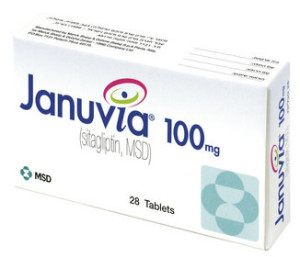Lawsuit Links Blockbuster Drug Januvia to Pancreatitis
 A Pennsylvania couple has filed a Januvia pancreatitis lawsuit against Amylin Pharmaceuticals, et al. alleging that the defendants’ medication directly resulted in the development of acute pancreatitis. Richard and Claire Russo filed the claim on February 18, 2014 in the Superior Court of Los Angeles. In their complaint, the plaintiffs request that the lawsuit be included in the coordinated proceeding, JCCP 4574, which is pending in the Superior Court of Los Angeles with regard to problems with Byetta and Januvia.
A Pennsylvania couple has filed a Januvia pancreatitis lawsuit against Amylin Pharmaceuticals, et al. alleging that the defendants’ medication directly resulted in the development of acute pancreatitis. Richard and Claire Russo filed the claim on February 18, 2014 in the Superior Court of Los Angeles. In their complaint, the plaintiffs request that the lawsuit be included in the coordinated proceeding, JCCP 4574, which is pending in the Superior Court of Los Angeles with regard to problems with Byetta and Januvia.
These drugs are medications used to treat diabetes in conjunction with a proper diet and exercise program. The FDA approved Januvia for use in patients with type 2 diabetes in October 2006. It may be used alone with lifestyle modifications or it may be prescribed in combination with metformin or thiazolidinediones when Januvia alone is found insufficient. Januvia, a dipeptidyl peptidase-4 (DPP-4) inhibitor, was aggressively marketed following its approval.
As one of the best selling drugs in the U.S., it resulted in $919 million in sales during the first quarter of 2012 alone. In 2011, the drug netted more than $1.3 billion in sales. However, as this lawsuit claims, the defendants are alleged to have placed their bottom line ahead of the health and welfare of diabetes patients.
Plaintiff suffers from acute pancreatitis
Richard Russo claims that he began taking Januvia in May of 2009 and continued to use the medication as prescribed until approximately December 2, 2011. At that time, the plaintiff was diagnosed with acute pancreatitis, a condition that caused him significant physical, emotional, and economic injuries, according to the Januvia lawsuit. The complaint claims Januvia was directly responsible for causing this medical condition, and that the plaintiff was unaware of the association between incretin mimetics and pancreatic damage until shortly before he filed his lawsuit. Had the plaintiff known of the serious risks involved with Januvia, he never would have taken the drug and would have instead chosen a safer alternative.
The pancreas is a large gland in the stomach area that is responsible for releasing digestive enzymes, and for releasing insulin and glucagon into the bloodstream to regulate blood glucose levels. Acute pancreatitis occurs when the gland suffers from sudden inflammation, causing symptoms ranging from mild discomfort in the abdominal region to severe, life-threatening complications. Some of the complications associated with pancreatitis include infection, cyst formation, serious tissue damage, and organ damage.
Lawsuit notes link between pancreatitis and pancreatic cancer
The plaintiff’s Januvia lawsuit lists multiple studies linking the drug to pancreatitis and pancreatic cancer. It notes one study that evaluated adverse event reports submitted to the FDA that demonstrated patients taking Januvia had a six times greater risk of pancreatitis compared to safer diabetes medications. Furthermore, patients have a 2.7-fold increased risk of pancreatic cancer. This is largely because pancreatitis is a significant risk factor of pancreatic cancer.
The lawsuit mentions a study by German researchers that decried the increased risk of pancreatic cancer among patients taking Januvia, Byetta, and similar diabetes drugs. While the lawsuit makes no mention of the plaintiff having been diagnosed with this type of cancer, Russo is aware that he is at a higher risk of it. Even when pancreatic cancer is diagnosed early, the prognosis is very poor. Should the plaintiff be diagnosed with pancreatic cancer in the future, he can expect invasive treatments such as removal of the pancreas, as well as severe complications such as significant, ongoing pain, bowel obstruction, and possible death.
Januvia & Byetta lawsuits allege over-promotion
This Januvia lawsuit alleges the defendants over-promoted the diabetes drug and overstated its safety. The defendants are alleged to have known of the potential for life-threatening side effects, yet concealed this knowledge from the plaintiff, his doctors, and the medical community as a whole. The complaint further contends the defendants should be held liable for defective formulation of the drug, failure to perform adequate safety testing, and failure to provide adequate warning labels.
- Mayo Clinic, Pancreatic Cancer, http://www.mayoclinic.org/diseases-conditions/pancreatic-cancer/basics/definition/con-20028153?p=1
- WebMD, What Is Pancreatitis? http://www.webmd.com/digestive-disorders/digestive-diseases-pancreatitis


 Resources
Resources
 Resources
Resources
